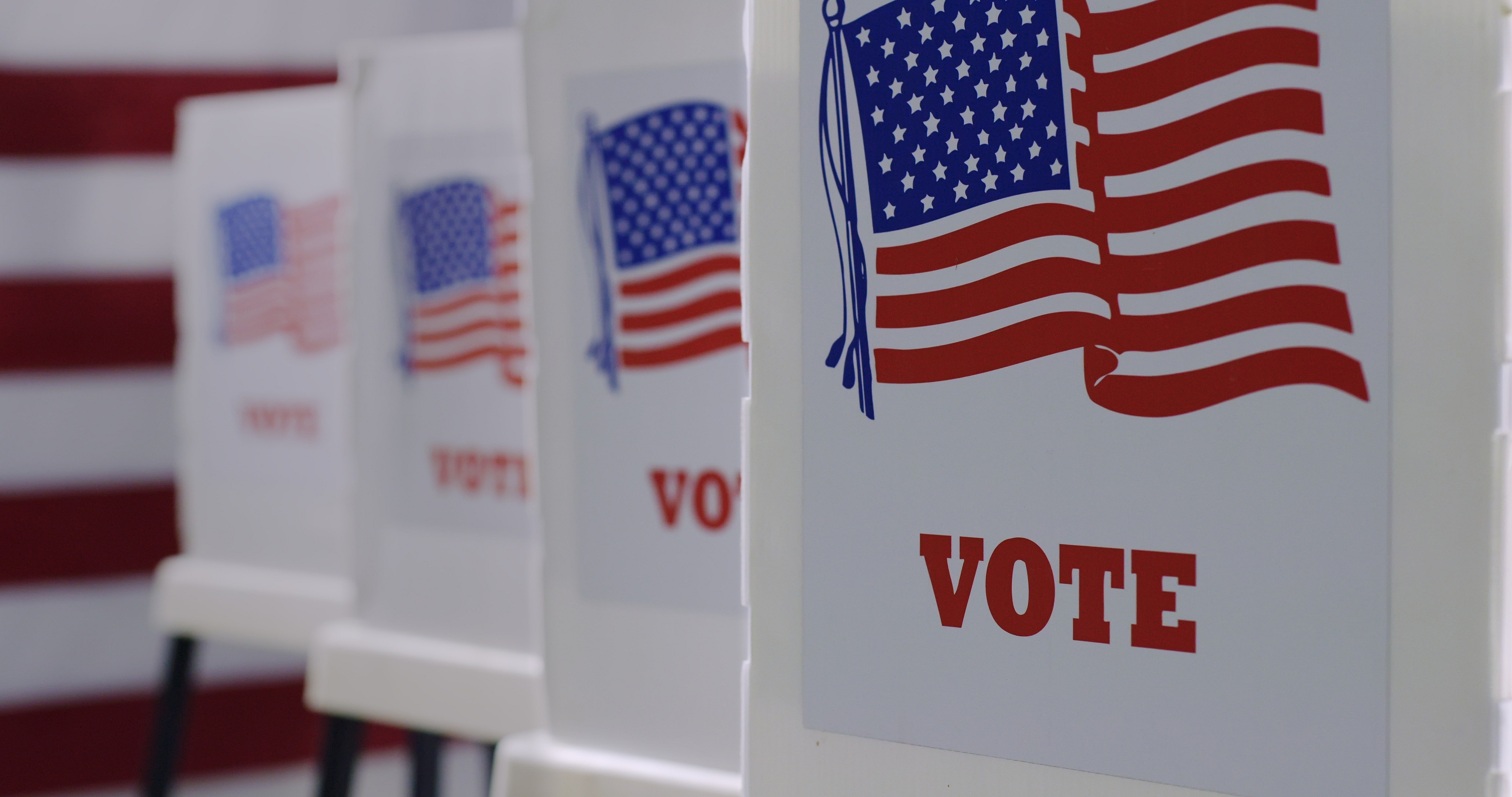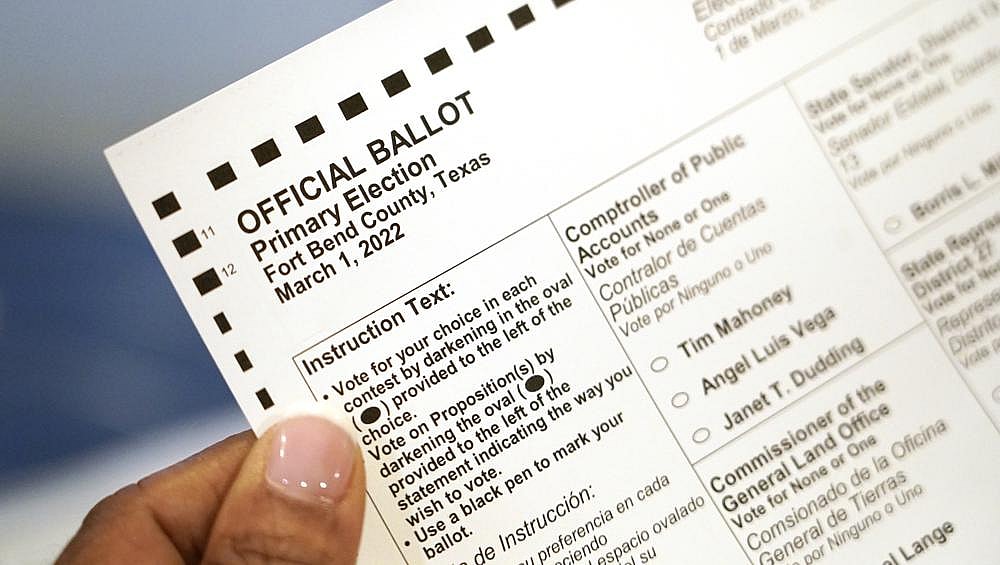AUSTIN, Texas (AP) — Federal judges in Georgia and Texas have ruled against key provisions of two controversial election laws passed two years ago as the Republican Party sought to tighten voting rules after former President Donald Trump’s loss in the 2020 presidential contest.
U.S. District Judge Xavier Rodriguez struck down a provision of Texas’ law requiring that mail voters provide the same identification number they used when they registered to vote. He ruled the requirement violated the U.S. Civil Rights Act because it led to people being unable to cast ballots due to a matter irrelevant to whether they are registered.
The change led to skyrocketing mail ballot rejections in the first election after the law passed in September 2021 and was targeted in a lawsuit from the U.S. Department of Justice.

“This ruling sends a clear message that states may not impose unlawful and unnecessary requirements that disenfranchise eligible voters seeking to participate in our democracy,” Assistant Attorney General Kristen Clarke said in a statement after the ruling, which came Thursday.
The Texas Attorney General’s office did not immediately respond to a request for comment.
In Georgia, voting rights advocates got a more mixed set of rulings Friday from U.S. District Judge J.P. Boulee.
He temporarily prohibited officials from enforcing penalties against people who provide food and water to voters waiting in line as long as they are more than 150 feet from the building where voting is taking place. He also blocked a part of the law that requires voters to provide their birthdate on absentee ballot envelopes.
But Boulee rejected the groups’ claims that certain restrictions imposed by the law deny voters with disabilities meaningful access to absentee voting.
That led both sides to declare victory. Georgia Secretary of State Brad Raffensperger, a Republican, said in a news release that the court upheld key portions of the state’s law.
“I am glad that the court upheld Georgia’s common sense rules banning ballot harvesting and securing absentee ballot drop boxes,” he said. “Georgia’s voting system is accessible to all voters, with multiple options for voters to choose how they want to exercise their right to vote.”
Still, civil rights groups who sued to block the law were cheered by the ruling: “Today’s decisions are important wins for our democracy and protecting access to the ballot box in Georgia,” said John Cusick, assistant counsel at the NAACP Legal Defense Fund.

The Georgia and Texas laws were two of the most prominent of a blizzard of red state restrictions on voting passed in the wake of Trump’s 2020 loss, which he falsely blamed on voter fraud. Voting Rights Lab, which has tracked the legislation from its beginning, said more than 100 restrictive laws have passed in more than 30 GOP-controlled states since 2020.
Conservatives have continued to push for increasing control of elections, even as the initial measures remain enmeshed in litigation.
The Georgia law triggered protests and the move of the 2021 Major League Baseball All-Star Game from Atlanta to Denver. However, turnout remained robust in the 2022 election in the state, leading Republicans to argue the backlash was overblown.
The Texas bill passed several months later after legislative Democrats fled the capitol to delay the measure. It contained even more restrictive provisions on voting, some of which increased the legal risk to election workers or even voters themselves.
Both of the federal court rulings, though they come two years after passage of the bills, are likely to be appealed. Advocates said they hope they’re upheld.
“I think these rulings demonstrate that courts agree that these kinds of restrictions on mail ballots especially really have no place in our democracy,” said Sophia Lin Lakin, co-director of the American Civil Liberties Union’s Voting Rights Project.
TheGrio is FREE on your TV via Apple TV, Amazon Fire, Roku and Android TV. Also, please download theGrio mobile apps today!

